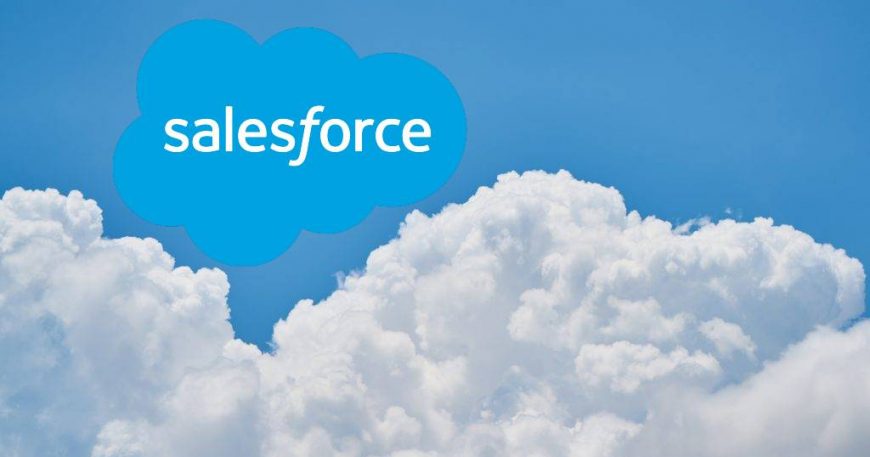We are living in a digital era where the way we play, work, and live has been changed completely. We have got access to the products and services that were considered to be available only in the territories of science fiction. Having the access to information merely does not make you successful unless you have the idea to make full use of that available information.
It has become a lot easier to get reviews of the products and services and gather customer information with the help of the Salesforce marketing cloud platform. That further helps marketers streamline their business process according to the data they collect.
The marketing cloud is the platform that is built to deliver customized journeys across multiple platforms. All of the customer’s interactions and engagements will be integrated into one platform and make it more effective for your business. It was previously known as “Exact Target” that enabled businesses to analyze the customer data in more detail and to reach their target audience in a timely manner.
Components of Salesforce Marketing Cloud
Salesforce marketing cloud is a feature-rich platform and has the following capabilities across the marketing domain.
- Email and Marketing Automation
- Social Media Engagement
- Customer Marketing Analytics
- Customer Engagement in Real-Time
Moreover, in order to make your customer’s experience better and personalized, you can use a journey builder that helps create automated multi-channel journeys using many of the capabilities mentioned above.
Data-driven Messaging
The technology may send messages to each contact based on their existing data, and then trigger additional messages depending on real-time data changes and interactions with the client. It can have several branches (like a tree) – and decisions can be made on various branches depending on:
Contact Data
This is the data of the contact you send information to. Any information associated with this data helps you to decide which journey branch to take. A contact might be in a communication journey but can be converted to a customer so SFMC will automatically place that contact from prospect journey to new customer journey.
Journey Data
This is the information of the customer interaction with the SFMC journey (e.g., email opens or clicks). A welcome journey is one example. A customer may receive many emails after purchasing a product (email 1 – welcome, email 2 – product registration, email 3 – product usage tips, and so on). Salesforce Marketing Cloud can track who opens and responds to each email. If a customer does not open or interact with Email 2, you may send them down a branch to resend Email 2 after a configurable time (e.g., five days), or you can send them down a branch to get Email 3 if they have opened and interacted with Email 2.
Multi-channel Messaging
Salesforce marketing cloud allows you to contact its customers through email and SMS Such as;
Customer Service and Support Case Communication
Send emails to customers to transmit content related to service and support. Use SMS to send more timely information (for example, service workers are on their way, or a change in your service/support case status, such as a closure).
Post-Purchase Communication
Share post-purchase messaging via emails and SMS. You can, for example, create a journey with emails for shipment status till the point when something is delivered. SFMC sends an email to the customer informing them that the package was delivered, and then follow up with a product registration email and possibly a customer survey.
Financial Communication
Any customer information related to loans or credit can be communicated through email and SMS. For instance, it can remind them of the upcoming loan payment if any. It would be beneficial for the customer because it keeps reminding them of the due date to avoid payment penalties.
Salesforce Industry solutions by Rolustech
[wptb id=32181]
Salesforce Marketing Cloud Benefits
The benefits of using marketing cloud are as follows:
Data management
Marketing Cloud is accomplished through the use of data extensions (tables) that can be linked together to build a relational database supported by SQL. This, along with SFMC’s ability to store a variety of data types and construct your own data model, gives it an edge over competitors who only support a limited data model constrained by the data they can import and handle. One of the reasons for this is that it allows for more complex audience segmentation and building within SFMC.
Integration Capabilities
Salesforce marketing cloud does have integration capabilities where it will provide data from various sources. It also provides various APIS, including a REST API and a SOAP API.
Third-Party Applications
There are also third-party applications available, including salesforce app exchange to customize the data and make it business-specific.
Application of Artificial Intelligence
Within SFMC, Salesforce’s artificial intelligence technology, termed as “Einstein,” has various unique applications, including:
- To predict who will interact with messaging, using engagement scoring
- Sent time optimization predicts the ideal time to send a message to each user, increasing the likelihood that it will be opened
- Engagement frequency determines how many messages to send to every customer
All of these things work together to improve consumer connection with your business while also giving a tailored experience (and hopefully preventing disengagement).
While SFMC is not the cheapest product in its market, it is an adaptable platform that can develop with your business and is not a tool that your organization will outgrow.
Rolustech is an Official Salesforce Partner firm and has completed several Salesforce Integration, Customization, Implementation projects. Contact us now for a FREE Business Analysis. We will be glad to assist you!




